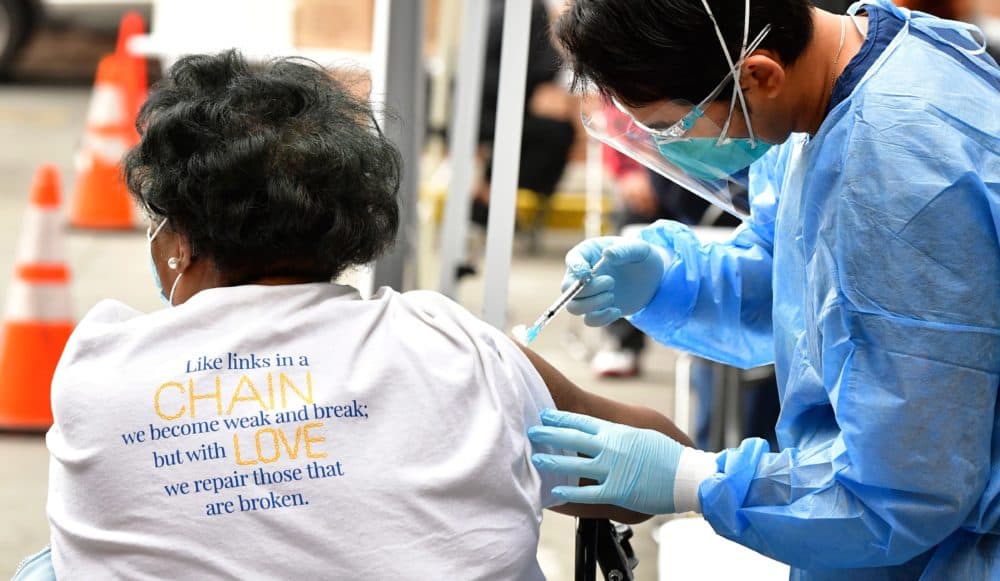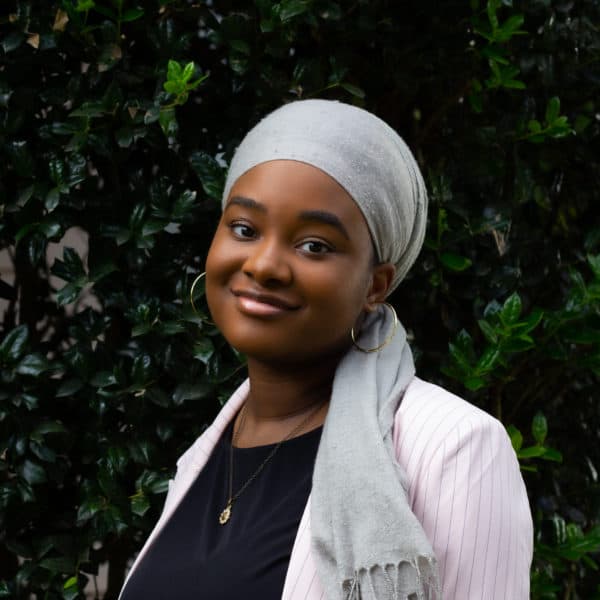Advertisement
Nurse Practitioner Shares Challenges With Vaccinating Homeless Community

In the Los Angeles area, the challenge of vaccinating people is further compounded by the city’s homeless population.
Health officials are trying to vaccinate 65,000 people who are experiencing homelessness in LA County. Shannon Fernando, a nurse practitioner and chief innovations officer at Los Angeles Christian Health Centers, is tackling this challenge head on.
Vaccinating people facing homelessness requires a measure of creativity, she says. It’s difficult to reach people who are homeless, and officials must also work to ensure people get their second dose.
To vaccinate people without stable housing in LA, Fernando and her team are utilizing existing partnerships in the community and sending out street medicine teams to encourage people to take the vaccine.
The key to the process is their clinic, which Fernando says is a federally qualified health center. The clinic staff work to raise awareness about and promote the safety of the vaccine.
Still, she admits there’s a level of distrust in the community. It mostly stems from people who are worried about side effects or concerns that the vaccine was developed too quickly.
“I think what we've really been trying to do is even just share anecdotes about how we've gotten the vaccine,” Fernando says, in addition to sharing data and evidence to assuage people’s fears.
The anecdotes help, but only if there’s doses to complement them. Fernando says their clinic is only giving out about 100 doses each week, which isn’t nearly enough to meet the demand. And many people facing homelessness struggle with health issues associated with aging.
Giving shots to people experiencing homlessness who are 50 years and older would make the process quicker and more efficient, Fernando says. But for now, the clinic has to follow the guidelines to first vaccinate those who are 65 and older.
Advertisement
Fernando and her team are also taking steps to keep track of people in the community who are homeless.
“What we've been doing is making sure they know exactly when to come back,” she says, by scheduling follow up appointments and sharing contact information after they receive their first vaccine dose.
For those that don’t have a permanent address or phone number, a photo is taken of them so they can be found later.
Fernando is also focusing on providing means of access for people who are homeless to get the vaccine, especially if transportation is an issue.
“We really want to be able to continue to be the safety net for our community members,” she says. “And that means getting more vaccines into our hands so that we can give it to our community members.”
Marcelle Hutchins produced and edited this interview for broadcast with Tinku Ray. Jeannette Jones adapted it for the web.
This segment aired on February 22, 2021.

